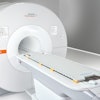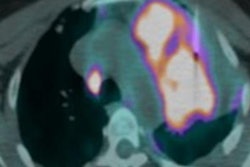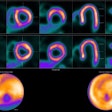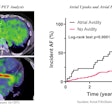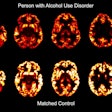Dear Molecular Imaging Insider,
It's no secret that when the COVID-19 pandemic first hit the U.S. in the spring of 2020, it led to sharp declines in medical imaging exams across the board as patients postponed nonessential medical procedures. But did these delays affect the care of patients? That question is the focus of this edition's Insider Exclusive.
Researchers from the University of Alabama at Birmingham documented a dramatic 81% decline in SPECT myocardial perfusion imaging (MPI) exams at their facility during the first peak of the pandemic in the spring of 2020. But they didn't see any statistically significant difference in the rate of abnormal SPECT-MPI exams before and after the study period.
When you're done reading this edition's Insider, check out all the other fascinating articles in the Molecular Imaging Community. For example, we bring you an article on an intriguing whole-body screening project conducted in Japan that used PET/CT for screening asymptomatic healthy subjects.
In other news, researchers from Brazil found that guiding biopsies using PET/CT could detect more malignant lesions than CT alone, thanks to the metabolic information added by FDG-PET.
Meanwhile, researchers from Australia investigated two copper radionuclides that target the somatostatin receptor, which is overexpressed in neuroendocrine tumors. They found that the radiotracers -- which have diagnostic and therapeutic components -- can not only identify tumors but also improve survival, suggesting that the isotopes could be a replacement for the combination of gallium-68 and lutetium-177.
Has the supply of radiotracers been affected by the COVID-19 pandemic? Radioisotope producers in Canada think so. They say that shipments have been delayed due to a decline in commercial passenger traffic, as isotopes are often shipped as cargo on passenger jets.
Developers of new radiopharmaceuticals are already off to a busy year. One company, ImaginAb, has signed a deal with drug giant Pfizer to provide its zirconium-89 CD8 Immuno-PET agent for use in clinical trials of cancer patients.
Another firm, Avacta Group, inked a relationship to supply its pre/Cision technology for developing tumor-activated radiopharmaceuticals to Point Biopharma, which is developing radioligands for cancer treatment.
And Blue Earth Diagnostics has signed a deal with German radiopharmaceutical firm Scintomics and the Technical University of Munich for exclusive access to therapeutic applications of their radiohybrid prostate-specific membrane antigen (rhPSMA) technology. Blue Earth already has rights to the diagnostic use of rhPSMA.
Finally, changes are underway at molecular breast imaging (MBI) developer Dilon Diagnostics. The company's technologies and patents have been acquired by SmartBreast, including the Dilon 6800 MBI scanner. Check back soon for more developments.
Stay well, and stay safe.



